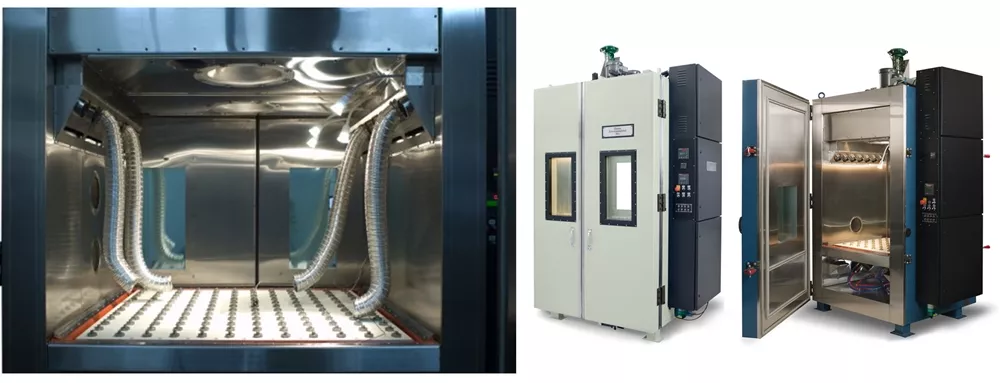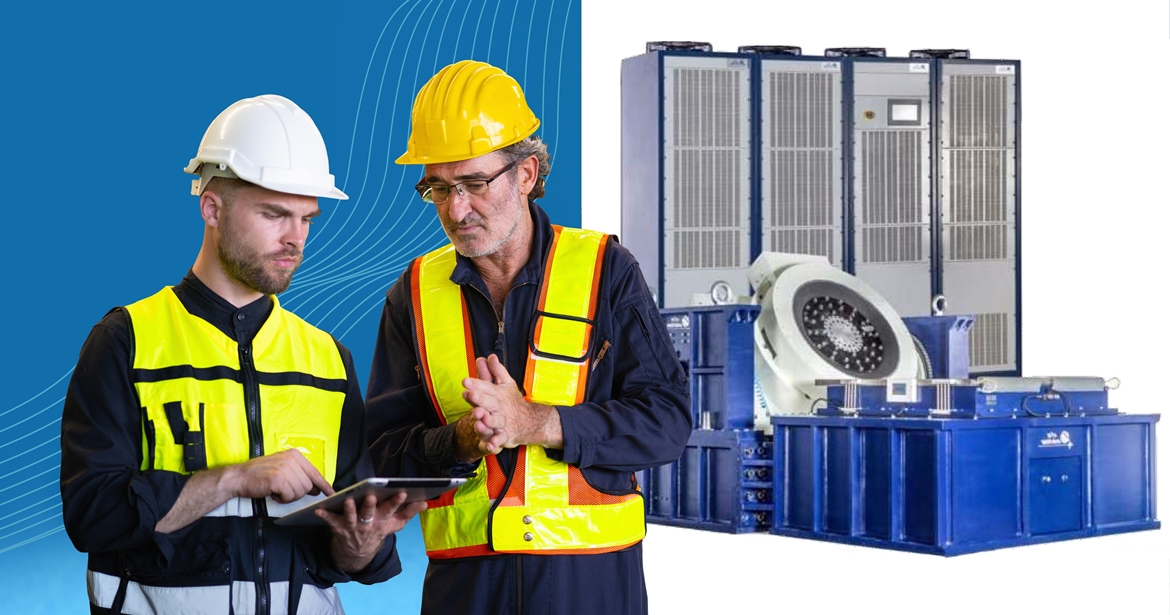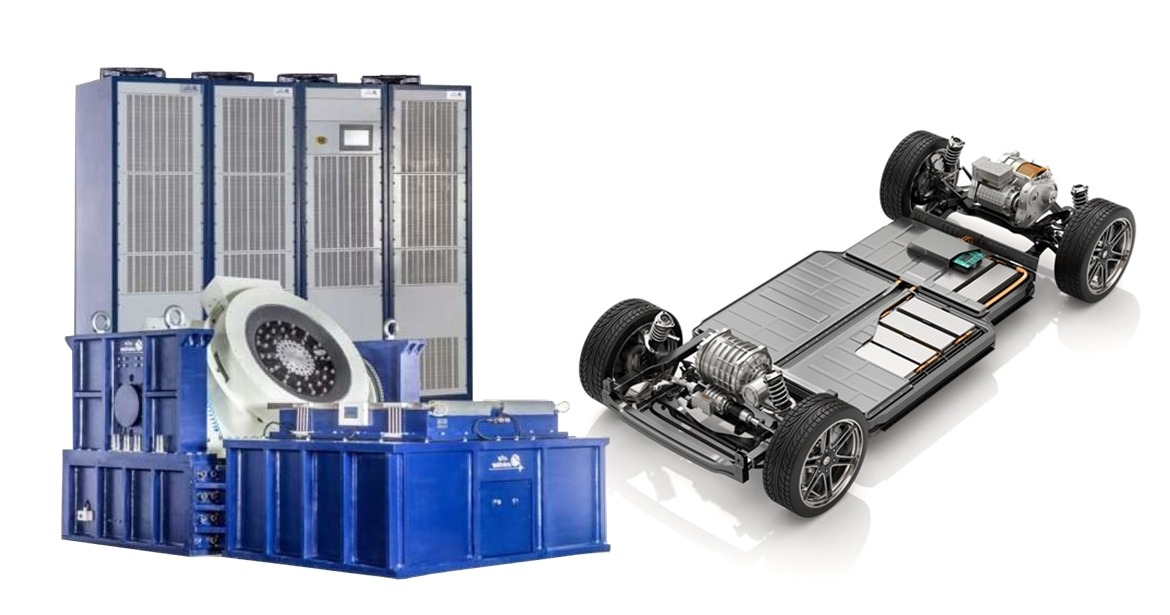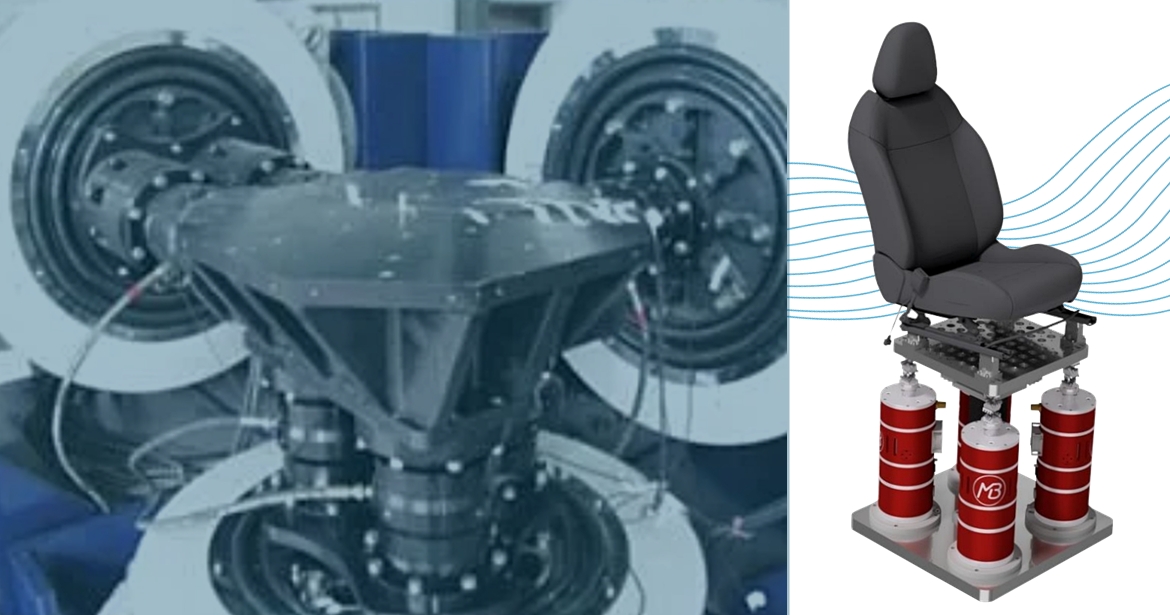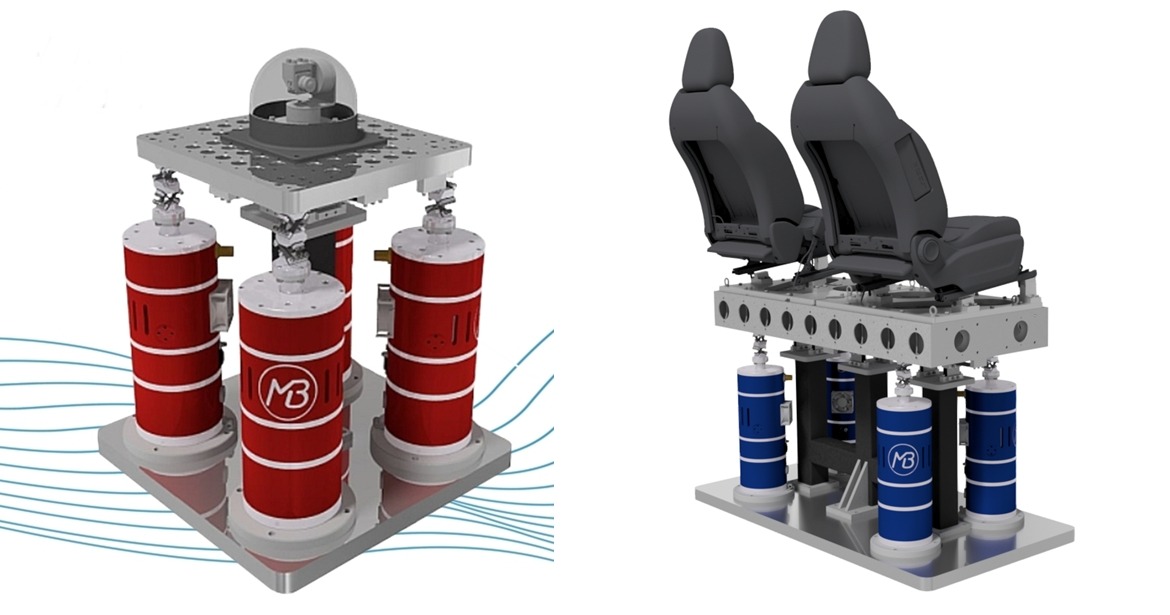HALT (Highly Accelerated Life Testing) and HASS (Highly Accelerated Stress Screening) chambers are designed to expose products to extreme environmental and operational stresses. This process helps identify vulnerabilities, defects, or flaws in their design or manufacturing. Hanse Environmental is a leading manufacturer of these chambers, offering cutting-edge technology to industries around the world.
When to Use HALT/HASS Chambers
HALT (Highly Accelerated Life Testing)
HALT is typically conducted in the early stages of product development, often during the prototype phase. Products are subjected to increasing levels of stress, including temperature and vibration (both independently and in combination), rapid thermal transitions, and other stressors tailored to the product’s expected usage. These conditions mimic real-world environments, ensuring that the testing is relevant to the product’s intended application. This approach offers several key benefits:
- Vulnerability Identification: HALT helps identify weaknesses or design flaws by pushing products to their operational and destructive limits, offering valuable insight for improving reliability.
- Design Optimisation: By revealing areas for improvement under extreme conditions, HALT allows engineers to enhance the product’s robustness and performance.
- Accelerated Testing: HALT speeds up the testing process, uncovering defects more quickly than traditional methods, helping to move the product into production and to market faster.
HASS (Highly Accelerated Stress Screening)
Once a product has been refined during the design phase, it moves into production. HASS is used during this manufacturing phase as a quality assurance tool. It helps to detect defects and inconsistencies in the production process, ensuring that only reliable, defect-free products reach the market.
- Defect Detection: HASS identifies any issues that may arise during production, providing an extra layer of quality control.
- Enhanced Product Reliability: By systematically screening products, HASS ensures they are reliable and reduces the likelihood of failures in the field.
Conclusion
Hanse Environmental's HALT/HASS systems are invaluable for industries prioritising product quality and reliability. These chambers allow manufacturers to identify weaknesses early, make design improvements, and prevent defects, resulting in more robust and reliable products.
The latest chambers from Hanse offer temperature change rates of 70°C per minute, with a range from -100°C to 200°C. The integrated vibration systems feature a specially designed table with pneumatic actuators capable of generating up to 100 Grms across a frequency range of 5 to 10,000 Hz in three axes, including rotational movements. Additionally, Hanse now offers humidity stress testing as an option across its full range of eight standard HALT/HASS models, all of which can be customised to meet specific customer needs.
Whether it’s electronics, automotive, aerospace, healthcare, or other industries, these chambers play a crucial role in enhancing product reliability, ultimately delivering safer and better products to the market.
Visit the CentraTEQ Ltd website for more information on The Art of Accelerated Testing: Hanse Environmental HALT/HASS Chambers

